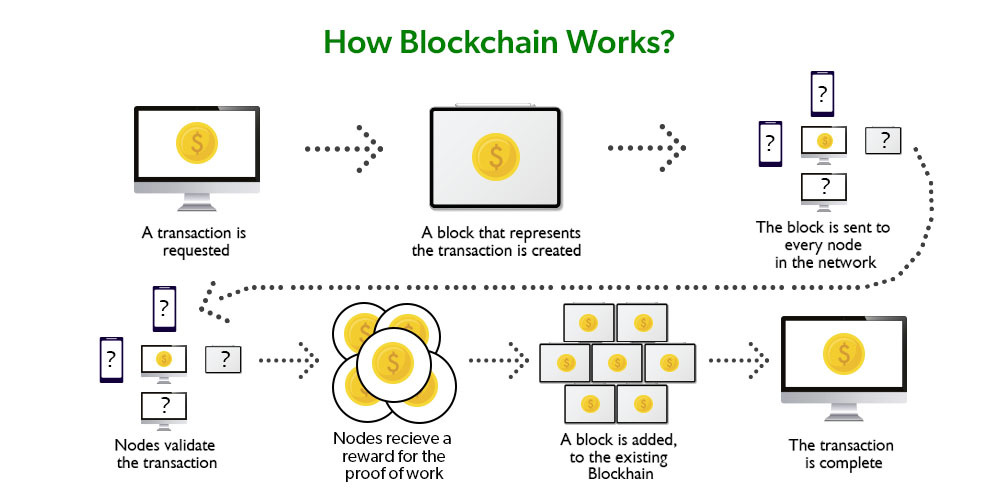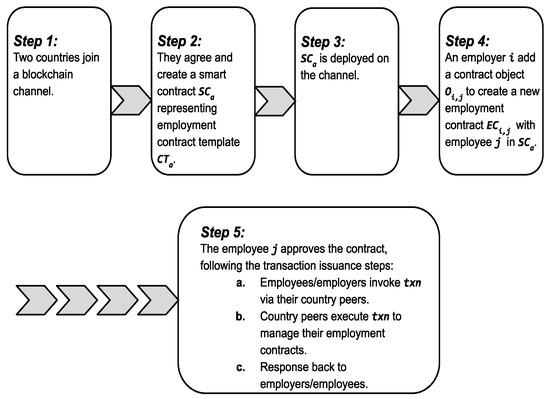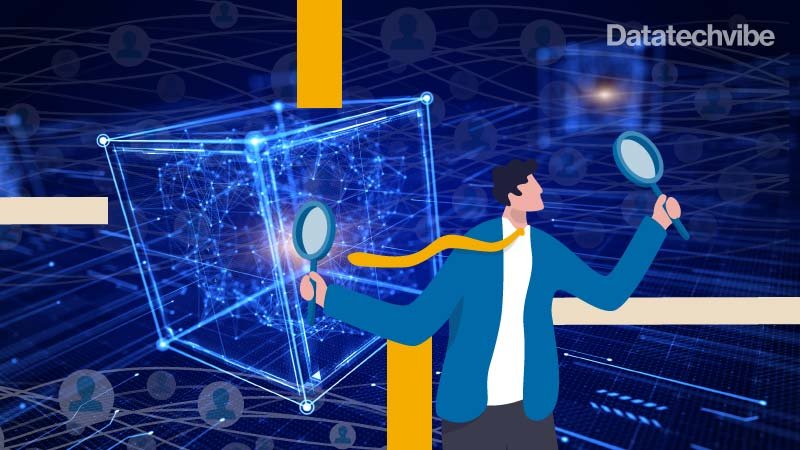
Introduction
Definition of Blockchain in Employment
As the digital age continues to unfold, the concept of blockchain technology emerges as a transformative force in various sectors, including employment. At its core, blockchain is a decentralized, distributed ledger that records transactions across multiple computers. This technology not only enables transparency and security but also fosters trust among parties without the need for intermediaries.
In the realm of employment, blockchain can revolutionize numerous processes, from hiring to payroll management. Imagine a world where your qualifications and achievements are securely recorded and verifiable on a blockchain, making the recruitment process seamless and efficient. This innovation could eliminate the need for cumbersome background checks and lengthy verification processes, thereby speeding up hiring decisions.
The Impact of Blockchain Technology on the Future of Work
The implications of blockchain technology on the future of work are profound. By leveraging this technology, organizations can:
- Enhance data security and confidentiality
- Improve recruitment transparency
- Foster more equitable compensation practices
Picture a decentralized platform where freelancers can showcase their skills and connect directly with employers, without the need for traditional job platforms. This can lead to a more dynamic and fluid workforce, where talent is easily accessible and verified, allowing companies to swiftly find the right candidates.
As we delve deeper into the impact of blockchain, the future of work appears bright and interconnected, paving the way for innovative employment practices.

Evolution of Human Resources in a Blockchain World
Traditional HR Practices vs. Blockchain-based HR Systems
As organizations transition to a blockchain-based framework, the differences between traditional HR and blockchain-driven HR systems become starkly evident. Traditional HR practices often rely on centralized databases, which can make them susceptible to data breaches and inefficiencies. For instance, think about the time consumed in manually verifying candidate qualifications or processing payroll discrepancies.
In contrast, blockchain technology promotes a decentralized approach where employee records are transparent, secure, and immutable. This means that once data, such as employment history or skill certifications, is added to the blockchain, it cannot be altered or deleted, significantly enhancing trust in the information.
Key differences include:
- Verification Process: Traditional methods require significant time and effort; blockchain automates much of this.
- Data Security: Centralized systems are prone to attacks; blockchains offer enhanced security.
- Decision Making: HR can make faster, more informed decisions with instant access to verified data.
Benefits and Challenges of Implementing Blockchain in HR
Implementing blockchain in HR comes with a plethora of benefits, but challenges remain.
Benefits include:
- Increased Transparency: Employees can easily access their records.
- Reduced Fraud: Immutable records eliminate resume fraud.
- Streamlined Processes: Automation of numerous HR tasks saves time.
On the downside, challenges such as the initial cost of implementation and the need for training can be significant. Just like any technological shift, the transition requires proper planning and resources.
While there are obstacles to navigate, the potential rewards for HR practices in a blockchain world are immensely promising, paving the way for a more efficient and transparent workplace.

Decentralized Employment Platforms
Introduction to Decentralized Autonomous Organizations (DAOs)
As the world continues to embrace blockchain technology, Decentralized Autonomous Organizations (DAOs) are emerging as a novel concept that reshapes how we think about employment. In essence, DAOs are organizations governed by smart contracts on the blockchain, automating and democratizing decision-making processes. Imagine a workplace where all employees have a say in the company’s direction through transparent voting mechanisms—this is what DAOs offer.
In practice, members of a DAO can propose initiatives, vote on proposals, and collaboratively steer the organization without a traditional hierarchical structure. This not only empowers employees but also fosters an inclusive culture. Picture a freelance network where every contributor can influence policy changes affecting their projects or payments.
Key features of DAOs include:
- Transparency: All actions and transactions are recorded on the blockchain.
- Autonomy: No central authority oversees operations, promoting fairness.
- Global Participation: Talent from anywhere can join without geographical barriers.
The Rise of Self-Sovereign Identity in Employment
Complementing the DAO framework is the concept of Self-Sovereign Identity (SSI), which allows individuals to manage their digital identities independently. In today’s gig economy, maintaining control over personal information is crucial. SSI enables workers to own their credentials, showcasing verified skills and experience without relying on traditional institutions for validation.
For example, freelancers can present their digital identity directly to potential employers using blockchain-verified credentials. This eliminates the need for third-party validation, thus enhancing trust and security.
The evolution towards decentralized workplaces through DAOs and SSI not only democratizes the employment landscape but also fosters a sense of empowerment among workers, making the future of work vibrant and connected.

Smart Contracts and Employment Agreements
How Smart Contracts are Reshaping Employment Contracts
As we continue exploring the impact of blockchain on the employment landscape, smart contracts emerge as a game changer for employment agreements. These digital contracts are self-executing, with the terms directly written into code. They automate many aspects of the employment process, ensuring that both parties are clear on their obligations and rights from the outset.
Imagine a freelancer who completes a project only to face delays in payment. With a smart contract, the payment is automatically released upon completion of defined tasks, with no room for disputes. This technology allows for:
- Automated Payments: Funds are transferred instantly based on predefined conditions.
- Reduced Administrative Burden: Manual processing of contracts is significantly lessened.
- Accuracy: Terms are executed precisely as programmed, leaving no room for interpretation.
Ensuring Transparency and Trust in Employment Relationships
In a world where transparency and trust are paramount in employment relationships, smart contracts shine brightly. Because the contract terms are visible and immutable on the blockchain, both employers and employees can trust that agreements will be honored. This transparency helps mitigate conflicts and build stronger working relationships.
Consider the scenario of an employee claiming overtime hours. With a smart contract equipped with verifiable time-tracking features, both parties can easily reference facts, ensuring fairness and accountability. This technology promotes:
- Elimination of Conflicts: Clear, agreed-upon terms reduce the likelihood of misunderstandings.
- Increased Accountability: Actions are openly recorded, upholding integrity for all involved.
In essence, smart contracts not only streamline employment agreements but also foster a culture of transparency and trust that can redefine workplace dynamics.

Skill Verification and Credentialing on the Blockchain
Blockchain-based Verification of Skills and Credentials
As the job market grows increasingly competitive, the need for accurate skill verification and credentialing becomes essential. Blockchain technology offers a transformative approach to this challenge. By securely storing verified skills and credentials on the blockchain, employers can access a tamper-proof record of a candidate’s qualifications, making the hiring process more efficient and trustworthy.
Imagine attending a job interview where your potential employer can instantly verify your certifications and skill sets via a blockchain system. This can streamline the hiring process significantly, allowing employers to focus on candidate fit rather than sifting through unverifiable claims. The benefits of blockchain-based verification include:
- Accessibility: Skills and credentials are available to employers in real-time.
- Tamper-proof Records: Once data is recorded, it cannot be altered.
- Global Recognition: A credential verified on blockchain can be recognized by employers worldwide.
Eliminating Resume Fraud with Immutable Blockchain Records
One of the most significant advantages of using blockchain for skill verification is its ability to combat resume fraud. Traditional hiring processes often rely on self-reported information, leading to exaggerated claims or outright fabrications. With immutable blockchain records, employers can trust that a candidate’s qualifications are legitimate.
Consider a scenario where a candidate boasts multiple years of experience or advanced degrees. With blockchain’s transparent nature, any discrepancies can be easily identified, reducing the risk of hiring someone unfit for the role. The implications are profound:
- Increased Confidence: Employers can make informed hiring decisions based on verified data.
- Enhanced Workplace Integrity: A culture of honesty is promoted when candidates know their credentials are scrutinized.
In essence, blockchain technology not only enhances verification processes but also builds a more honest and reliable job market. By integrating these systems, organizations can revolutionize how skills and credentials are recorded and evaluated.

The Gig Economy and Blockchain
Impact of Blockchain on Freelancing and Gig Work
The rise of the gig economy has transformed the way we work, providing freelancers with unprecedented flexibility and opportunities. However, this fluid job market often comes with challenges such as payment delays, lack of accountability, and fragmented communication. Enter blockchain technology, poised to revolutionize the freelancing landscape.
By leveraging blockchain, freelancers can create profiles that showcase their skills, receive instant payments upon work completion, and ensure that all transactions are secure and transparent. Imagine a scenario where a graphic designer completes a project, and the payment is automatically released through a smart contract. This not only streamlines the process but also enhances operational efficiency.
Key impacts of blockchain on gig work include:
- Instant Payments: Eliminating the waiting period for payment processing.
- Direct Client Interaction: Reducing the need for intermediaries, thus retaining more earnings.
- Verified Credentials: Allowing freelancers to showcase verified work history and skills.
Creating Trust and Security in Decentralized Work Environments
One of the biggest hurdles in freelancing is establishing trust between clients and workers. Blockchain excels in addressing this issue, as the technology inherently promotes security and transparency.
In decentralized work environments, every transaction is recorded on an immutable ledger, meaning both parties can confidently engage in business without fear of fraud. For example, if a freelancer and a client agree on a project, the terms can be securely coded into a smart contract that governs the entire engagement—ensuring that both parties hold up their end of the bargain.
Furthermore, this approach helps to:
- Minimize Disputes: Clear records of agreements lower the chances of misunderstandings.
- Establish Reputations: Freelancers accumulate trust scores based on their performance and client feedback.
In today’s gig economy, the integration of blockchain not only nurtures a more trustworthy environment but also empowers freelancers to thrive amidst the dynamic landscape of gig work.

Regulatory Challenges and Future Outlook
Current Regulatory Landscape for Blockchain in Employment
Navigating the regulatory landscape for blockchain in employment is akin to sailing through uncharted waters. While the benefits of blockchain technology are becoming increasingly acknowledged, regulations have yet to catch up in many jurisdictions. Governments around the world are grappling with how to manage this innovation effectively without stifling growth.
In the current landscape, challenges include:
- Lack of Standardization: There’s no universal framework, which can lead to confusion.
- Data Privacy Concerns: The immutability of blockchain raises issues regarding the protection of personal information.
- Employment Classification: Traditional definitions of employment may not fit gig and freelance work powered by blockchain.
Innovative companies like TECHFACK are closely monitoring these developments and advocating for policies that support responsible blockchain implementation in employment practices.
Predictions for the Future of Work in a Blockchain-powered Economy
Looking ahead, the future of work in a blockchain-powered economy appears bright and filled with possibilities. As regulations begin to evolve, we can expect to see:
- Increased Adoption: More businesses will embrace blockchain for HR and employment functions, creating a standard practice.
- Enhanced Worker Protections: Regulators may implement frameworks to ensure fair treatment and compensation for gig workers.
- Future of Skills Verification: With ongoing improvements in credentialing, workers will have easier access to employment opportunities based on verified skills.
The integration of blockchain in employment not only promises to streamline processes but also fosters an environment of accountability and trust. This evolution will empower both employers and employees, reshaping the future of work into a more collaborative and equitable space. The potential is immense, and it’s exciting to think about how the workforce will adapt and thrive in this changing landscape.

